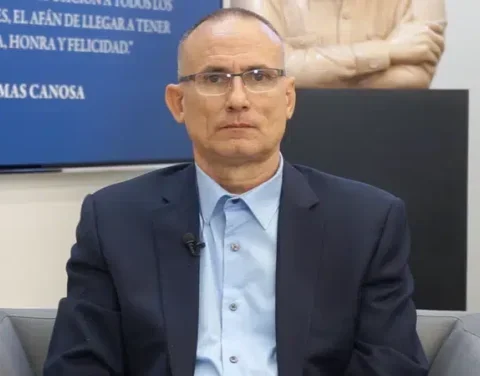The acceleration of inflation recorded in recent months was not in anyone’s plans when the salary agreements of most private sector workers in the second half of 2021, even though, first from the unions, and then from the companies, the official goals were questioned, a point that it was reflected in a large number of agreements outside the guidelines given by the Executive Power.
After the bridging period that was agreed to get through the worst of the pandemic, the last round of negotiations put on the table adjustments based on projected inflation plus a partial recovery component of the purchasing power lost between the middle of 2020 and 2021 (4.1 %).
The commitment of the Executive Power is that the recovery will begin in 2022 and will be completed in the next round of negotiations starting in the second half of 2023, that is, before the end of the government period. This roadmap is a strong bet by the Executive Branch that inflation consolidates its downward trajectory and converges to the goals established for the coming years, which today looks difficult. The consolidation of purchasing power growth in the sectors for which recovery was proposed depends on that.
The Minister of Labor and Social Security, Pablo Mieres, said that a way must be found so that the salary recovery objectives “continue to be on top of the table” and “can be fulfilled”. consulted by The Observer the hierarch maintained that the acceleration of inflation “generates a problem” that must be “study” and “analyze”.
“It is clear that there is an acceleration of inflation and we will see how we manage it. It is also unclear how this scenario will continue. For now, our line of work is to find a way to stop prices from skyrocketing (…) We have to sit down and analyze this at the government level as a whole. I think we have before us a new subject, it is clear. It is not the scenario that was planned”, acknowledged the minister. Inflation accelerated again in March and stood at 9.38% in the accumulated figure for the last 12 months, from a previous 8.85% in February.
Approximately half of the private sector negotiating tables established percentages around the guidelines of the Executive Branch and the another half did so with higher percentages of increase.
Thus, there were cases in which wage recovery percentages higher than those suggested by the government (1.6%) were agreed for the next two years.. Another difference is in the frequency of corrections for past inflation. There are agreements that have a stronger shield because they foresee two corrective measures, one that is paid on July 30, 2022 and another at the end of the agreement in July 2023.
On the other hand, there are groups that have stipulated a single correction for inflation only for the middle of next year at the closing of the agreement, and on paper they would be the most complicated. Taking into account the current scenario they will take longer to correct the gap in wages.
The issue is not only a difficulty for the workers who lose purchasing power, but also for the companies that later have to face cost increases to pay the corrective measures.
“Compromised recovery”, according to PIT-CNT
Diego Battiste
The government’s commitment is to reach the end of the period with a real wage level similar to that which existed before the pandemic. The economist of Cuesta Duarte Institute of the PIT-CNT, Alejandra Picotold El Espectador radio on Tuesday that the inflationary pressures that are being seen “have an important component” and it is expected that in the coming months “at least they will be maintained.” (…) That is going to compromise the recovery of real wages that was thought to begin this year”, he pointed out.
As an example, He mentioned that there are sectors whose workers in this semester have adjustments of between 3.5% and 3.7%, and added that only in the first three months of the year the accumulated inflation is 4.4%. According to Pico, to the extent that the corrective will only be activated in the middle of 2023, it is “postponing the recovery” and also conditioning its full compliance during the current government period.
What alternatives are there?
On paper, any part of the collective bargaining, Whether they are workers or businessmen, they could request the convocation of their Salary Council to analyze the situation and make modifications in the agreement of the parties, either in the periodicity of the corrective measures to advance payment or in the percentages of salary adjustments.. In general, this type of call for substantial variations in the economic conditions in which the agreement was signed is not contemplated in specific clauses within the agreements in force.
The current agreements that have safeguard clauses they are a small minority, and they foresee calls to review the situation in cases that inflation will exceed 12%. For example, in the beverage industry agreement, which has a term of four years, an additional immediate adjustment is established the following month for the difference between the accumulated inflation in the moving year and the adjustments granted. In the agreement for the auto parts sector, also with a four-year term, there is a similar trigger clause that is activated if inflation exceeds 10%.
For Peak, One instance in which the government could make a proposal could be in the middle of the year, when it reconvenes for salary negotiations. In that case of sectors highly affected by the pandemic (hotels, restaurants and travel agencies, among others), and for which a new bridge agreement was arranged last year that expires on June 30 and with a single adjustment of 3% last January.
Public sector
In the case of public officials, in the coming days it will be established a scope of negotiation between unions and the Executive Power to establish the amount pending recovery for 2021 and the way in which it will be recovered before the end of the current period of government.
According to the criteria established in the Budget Law, in January 2023 the adjustment will be 4.7% (projected inflation), and will include a corrective that takes into account the difference in more that would have been registered between the observed variation of the Index of Consumer Prices (CPI) during the validity of the previous adjustment (2022) and the percentage of adjustment granted for that year (5.8%), according to the law.
















